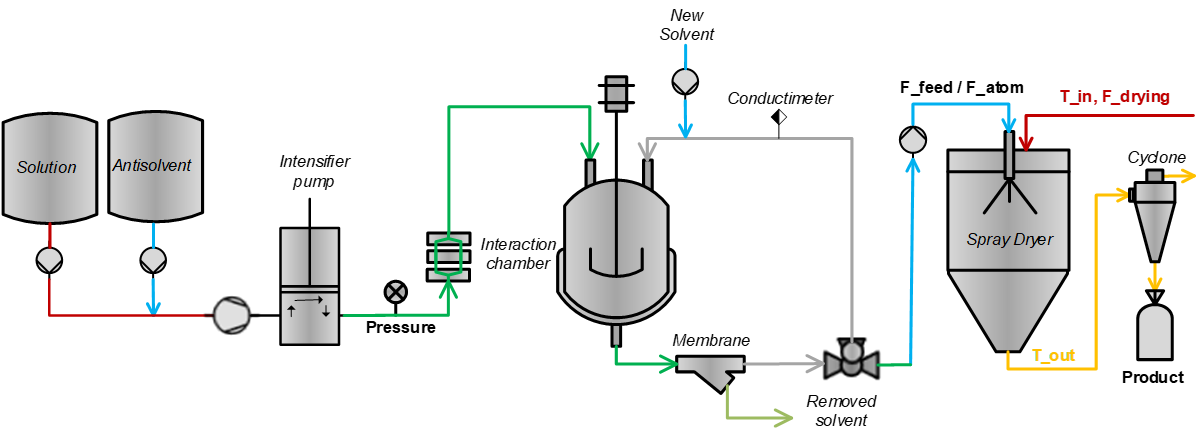2020 Virtual AIChE Annual Meeting
(645b) Leveraging Hollow Fibre Membranes and High Boiling Point Organic Solvents in the Production of Enteric Amorphous Solid Dispersions
Authors
Rute Mota, Rui C. Silva, João Vicente
In recent years up to 90 % of the drugs in the discovery pipeline are poorly soluble molecules which poses challenges for bioavailability and dosage form development. Furthermore, the physical and chemical properties of these candidate compounds result in poor solubility in aqueous and volatile organic solvents which hinders the development of amorphous solid dispersion (ASD) using spray drying (SD), while at the same time possessing melting points too high to use hot-melt extrusion (HME): such compounds are typically designated as âbrick dustâ [1].
In the literature several technologies can be found to deal with poorly soluble APIs: nanomilling or complexation with cyclodextrins fall within the non-ASD alternatives; co-precipitation; supercritical CO2 and KinetiSol [2], as an alternative ASD technology. One such strategy has been developed where nano or micro particles of API-polymer composite precipitate are produced via co-precipitation process using microfluidization. This technology offers the advantage of precise control of particle morphology and generates particles with surface areas that can be 10 times greater than those obtained using HME or SD [3]. Although this technology circumvents the low solubility aspect of the âbrick dustâ molecules it has some the following drawbacks: a) a suspension with very low solids load and, thus, longer drying process times; b) with âbrick dustsâ finding a solvent for both API and polymer in amounts for economically viable throughput usually means using organic polar solvents with high boiling points, such as dimethylacetamide (DMA) or dimethylformamide (DMF) or dimethyl sulfoxide (DMSO) which poses challenges to spray dry [3]. These drawbacks amount to longer process times with low throughput which may not be financially appealing in early stage development.
The work presented herein consists on a co-precipitation process with the inclusion of a cross-filtration hollow fibre membranes unit as a straightforward and scalable technology focusing on producing amorphous solid dispersions with âbrick dustâ compounds. The cross-filtration operation consists in a two-step approach: 1) the first step, concentration of the suspension, the removal of excess antisolvent to increase the solids load; 2) the second step, a solvent swap, where the presence of high boiling point organic solvents in the suspension is minimized by replacing it with an aqueous based solvent. This approach widens the co-amorphous technology to include high boiling points organic solvents best suited for âbrick dustâ while circumventing the need for secondary drying and reducing cycle time.
References
[1] Temtem M, The Coming of Age of Amorphous Solid Dispersions, Pharma's Almanac, 26 October, 2018.
[2] Jermain SV, Brough C, Williams RO 3rd, Amorphous Solid Dispersions and Nanocrystal Technologies for Poorly Water-Soluble Drug Delivery â An Update, Int J Pharm. 2018 Jan 15; 535 (1-2): 379-392.
[3] Duarte Ã, Corvo ML, Serôdio P, Vicente J, Pinto JF, Temtem M, Production of nano-solid dispersions using a novel solvent-controlled precipitation process â benchmarking their in vivo performance with an amorphous micro-sized solid dispersion produced by spray drying, Eur J Pharm Sci. 2016 Oct 10;93:203-14.
Figure 1 â Co-Precipitation Process Schematics with cross-filtration membranes setup
